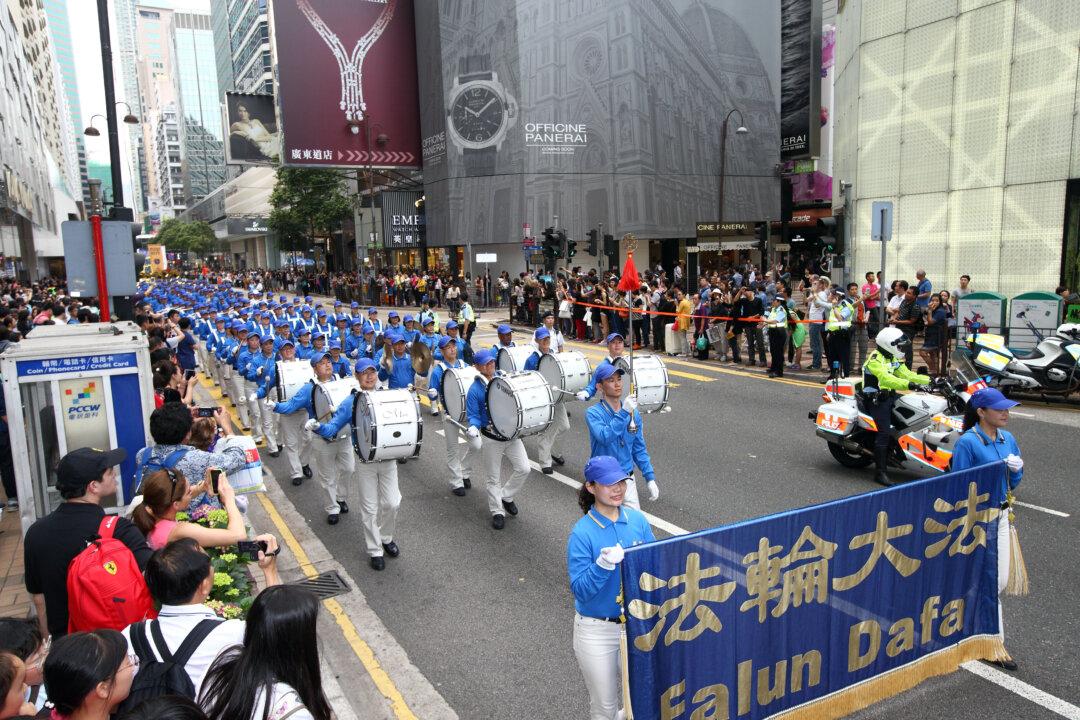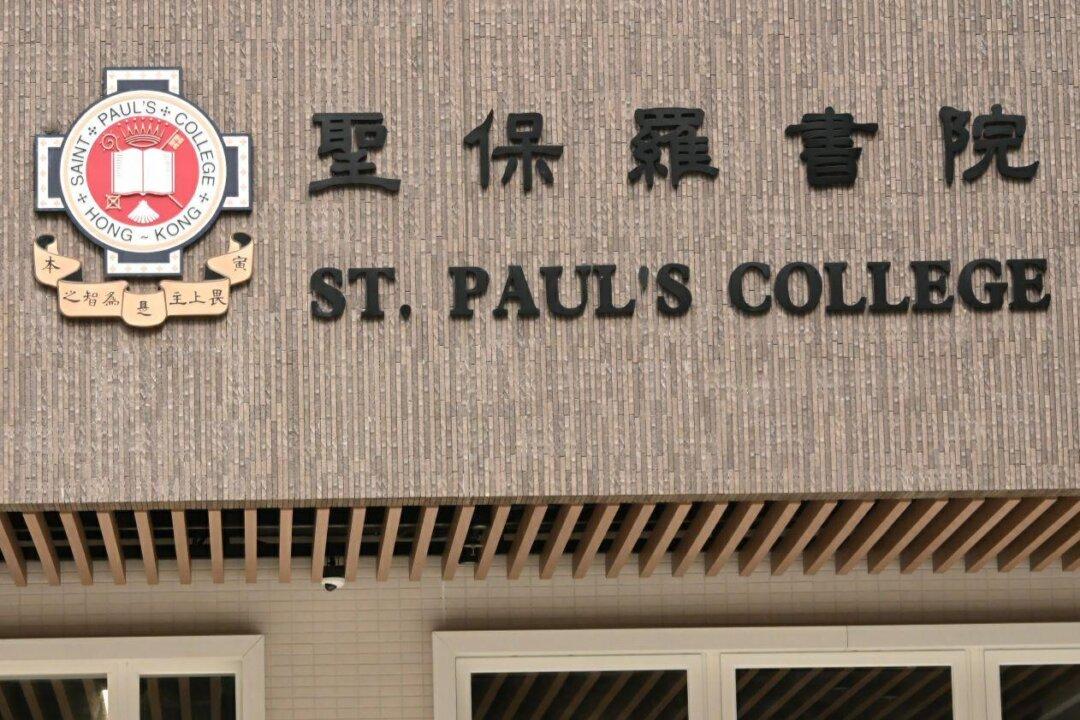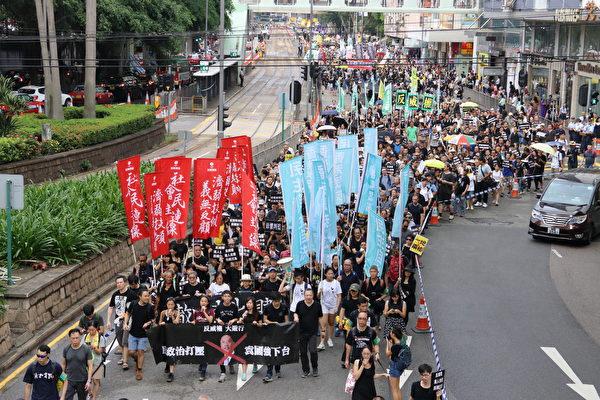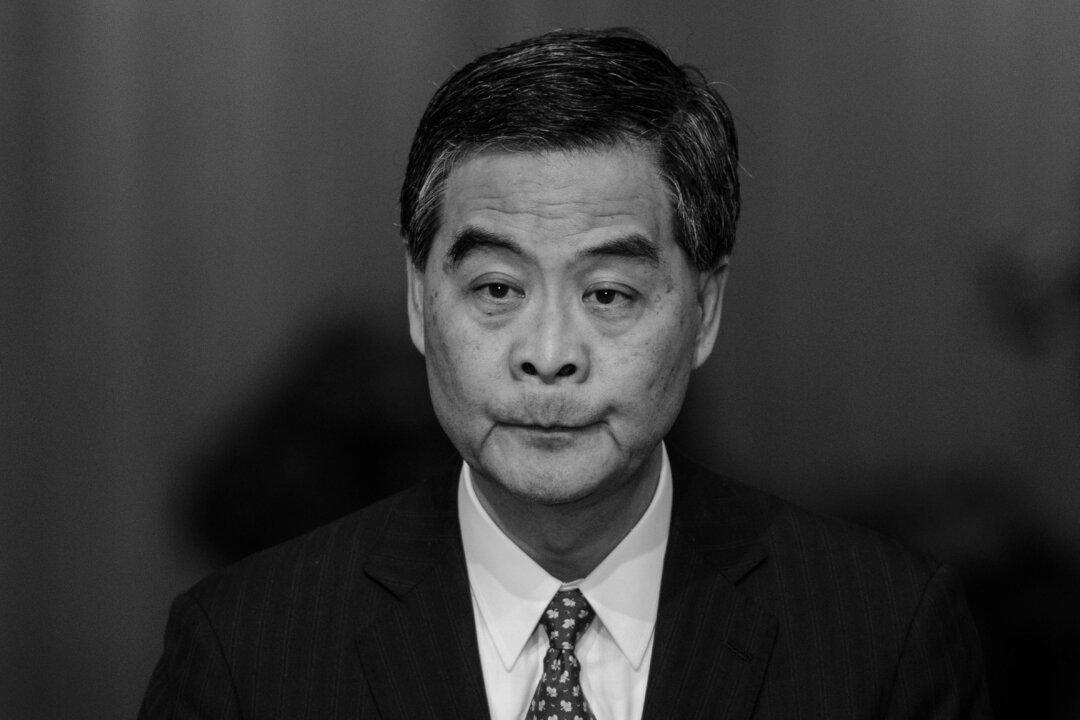HONG KONG—It has been 15 years since 10,000 Falun Gong practitioners held a peaceful appear on April 25 petitioning the central authorities for the right to practise Falun Gong, also known as Falun Dafa.
This April 20, more than 800 Falun Gong practitioners from Hong Kong and other Asian countries joined a march in Hong Kong to commemorate the peaceful appeal, to protest against the brutal persecution of Falun Gong by the Chinese Communist Party (CCP), and to call for an end to the persecution. Legislative councillors Lee Cheuk-yan, Leung Kwok-hung, Leung Yiu-chung, and Sin Chung-kai came to the rally to show support.
On April 25, 1999, approximately 10,000 practitioners of the Falun Gong spiritual practice gathered quietly in Beijing. They came from all walks of life and regions of the country to ask the Chinese communist regime to cease its escalating harassment of Falun Gong practitioners and ensure protection of basic human rights.
The event was the largest and most peaceful protest in modern Chinese history. However, the CCP used false propaganda to portray the appeal as a “siege” in order to justify the brutal suppression that has continued for 15 years.
On April 23 and 24, 1999, police officials in Tianjin, a city near Beijing, assaulted and arrested dozens of Falun Gong practitioners who had gathered outside a magazine office to discuss errors in a recent article attacking Falun Gong. As word spread of the arrests and more Falun Gong practitioners inquired with officials, they were told they had to take their appeals to Beijing.
Following the instructions of the Tianjin officials, some 10,000 Falun Gong practitioners spontaneously gathered at the central appeals office in Beijing the next day. The gathering remained peaceful and orderly. Several Falun Gong representatives were called in to meet with Chinese Premier Zhu Rongji and members of his staff.
That evening, the concerns of Falun Gong practitioners were met, the arrested practitioners in Tianjin were released, and everyone went home.
In the following months, however, a fierce political struggle ensued within the top levels of the Chinese Communist Party (CCP), according to several sources within the Chinese regime. Then-CCP head Jiang Zemin called upon the Party to “crush” Falun Gong, while other members of the Politburo Standing Committee of the CCP saw no threat in the practice.
Willy Lam, senior analyst for CNN, quoted senior CCP officials as saying the suppression of Falun Gong became very “personal” for Jiang.
In July 1999, Jiang formally ordered the persecution of Falun Gong.
In the CCP’s propaganda, the April 25 gathering was quickly re-characterised as “laying siege” to the central Party compound and used as evidence that Falun Gong was a threat. Falun Gong was thus misrepresented as something political, both in China and abroad.
Since then, Falun Gong practitioners all over the world have been working to explain the facts to the public and raise awareness to help stop the persecution. Despite the great pressure imposed by the CCP, Falun Gong practitioners have continued for 15 years their peaceful efforts to stop the persecution.




